What to Feed Chickens in Winter
This list of What to Feed Chickens in Winter will help you raise a hardy flock to withstand the cold temperatures. Look at it as if you are fueling a furnace on those cold, windy days.
Raising chickens that are healthy all begins with the food they eat. This guide will get you started off right.
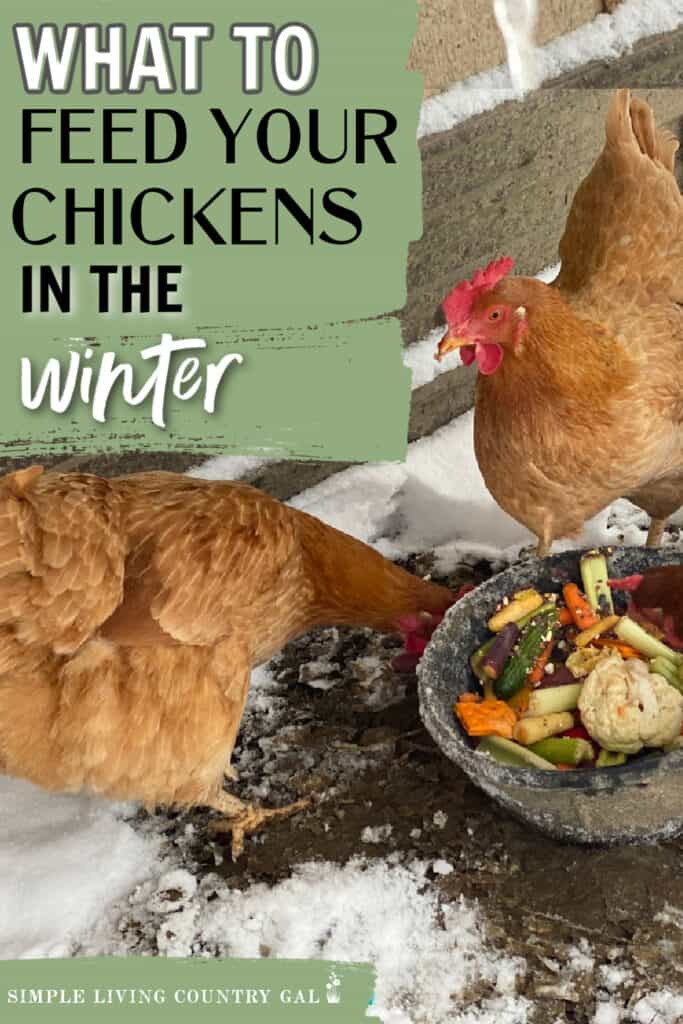
Raising animals in the cold weather can be a little nerve-racking for owners. You want to be sure everyone in your care is healthy and happy even when the temperatures are in the single digits. Knowing the best food to give your chickens is the best place to begin your winter care routine.
The Importance of Diet and Winter Hardiness
Chickens are cold-blooded animals, and that means they need more energy to maintain their body temperature during the colder months. By making a few diet adjustments in the winter, you can help them to better handle the colder temperatures. Proper nutrition is a must, especially if you want a flock that is thriving, consistently laying eggs, with strong immune systems.
Can chickens go outside in the winter?
Not only can chickens go outside in the winter, we actually recommend it. Fresh air is also important to a healthy flock especially if you are not able to do a daily clean inside of a coop. Chicken urine and manure has a strong smell and breathing that in daily without access to fresh air can cause breathing issues.
You can have an area in your outside run that is somewhat sheltered from the snow. Put a bowl outside and fill it with kitchen scraps to encourage everyone to come out. Don’t worry about your chickens staying out too long if they get cold…they will return to the coop.
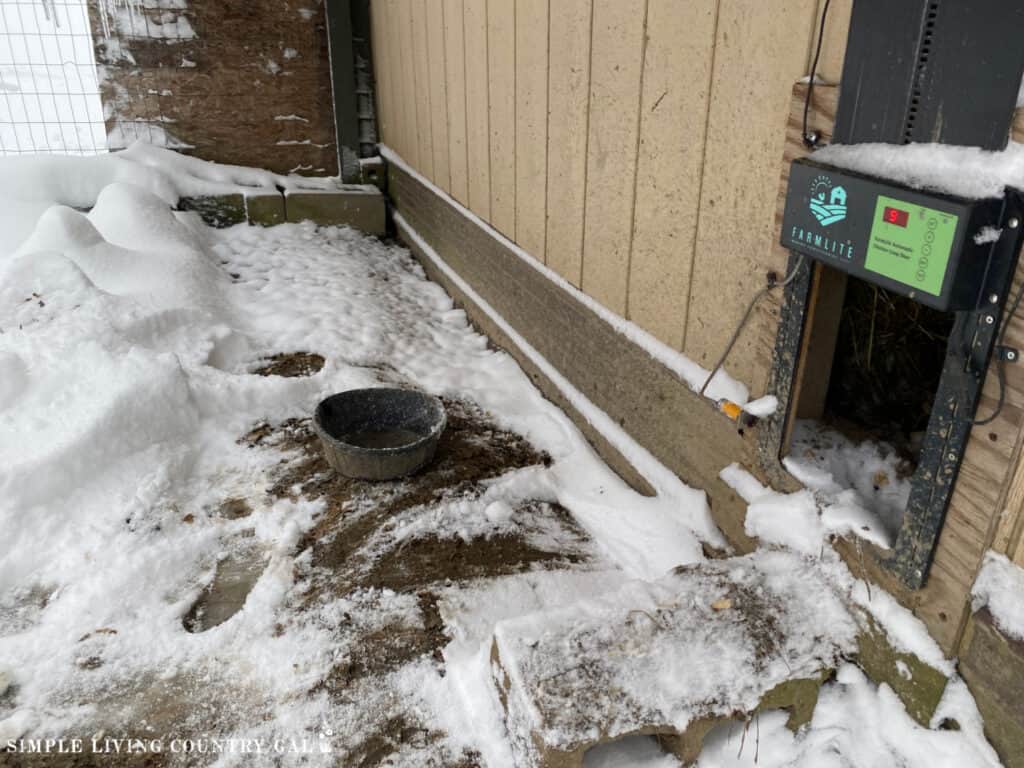
What foods increase energy in chickens?
There are certain types of food that will provide your chickens with the necessary energy to keep them warm and healthy during the winter months. These include:
#1. Grains: Whole grains like corn, oats, and barley are a great source of complex carbohydrates which help provide long-lasting energy for your chickens.
#2. Fruits: Apples, pears, and other winter fruits are high in vitamins, minerals, and antioxidants, which can boost your chickens’ immunity during the cold season.
#3. Vegetables: Leafy greens like kale and broccoli, as well as root vegetables like carrots and beets, are packed with nutrients that are essential for keeping your chickens healthy.
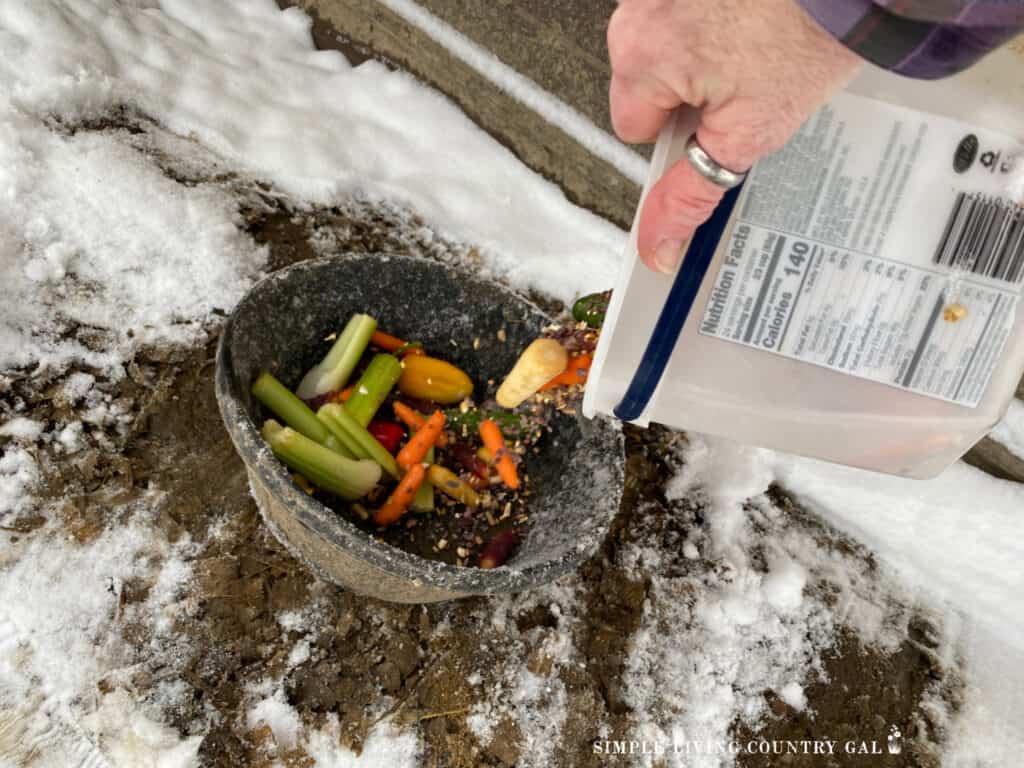
#4. Seeds: Sunflower seeds and other high-fat seeds are a great source of energy and help keep chickens warm during the winter.
#5. Mealworms: Dried mealworms are a great source of protein and fat, which can help keep your chickens warm and provide them with the necessary energy to withstand the cold weather.
Chicken Water Heater 15 in for 5 Gallons Chicken Drinker, 125W Poultry Waterer Heated Base with Thermostat and 9.8ft Power Cord for Metal Drinking Fountains Chicken Coop


Feeding Tips for Winter
In addition to providing your chickens with the right types of food, there are also some feeding tips you can follow to ensure your flock stays healthy and warm during the winter months:
• Increase their food intake: As mentioned before, chickens require more energy in the winter, so make sure to increase their daily food intake accordingly.
• Offer hot mash: A warm mash made of grains, seeds, fruits, and vegetables will not only provide your chickens with the necessary nutrients but also help keep them warm.
• Keep their water from freezing: It’s important to regularly check and replace your chickens’ water supply, as they need access to clean water at all times. You can also add a few drops of apple cider vinegar or electrolytes to the water to boost their immunity.
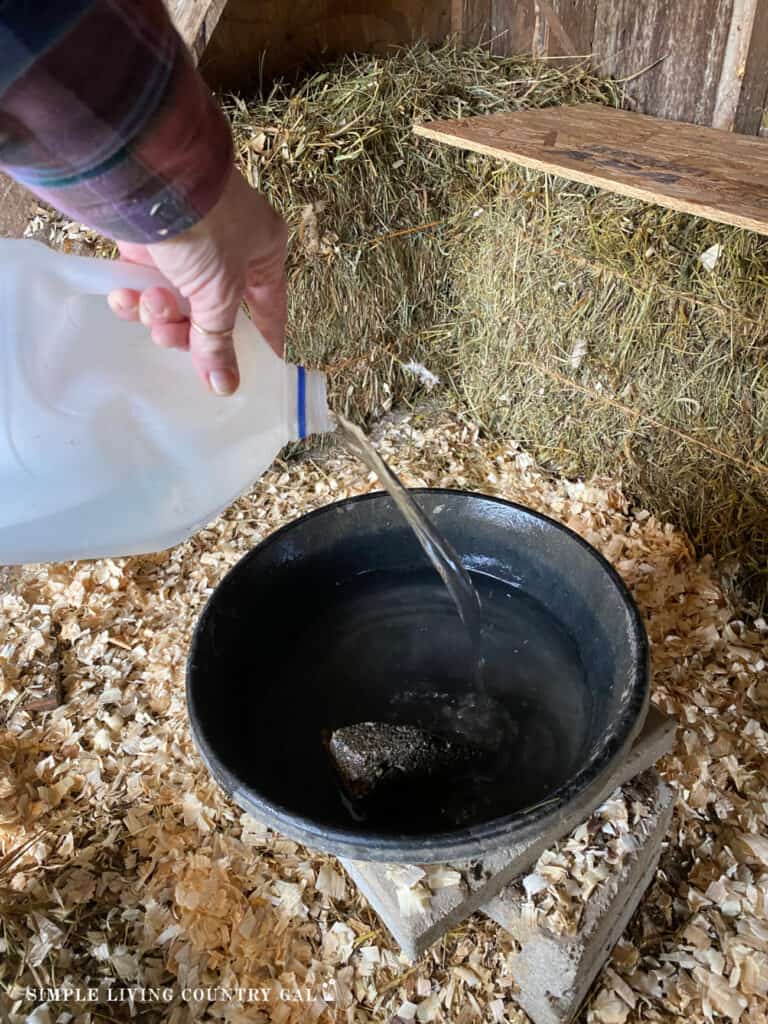
• Use insulated feeders: Insulated feeders will help keep your chickens’ food from freezing, allowing them to access their food throughout the day.
• Limit treats: While treats can be a fun addition to your chickens’ diet, it’s important not to overdo it during the winter. Treats are high in carbohydrates and can lead to obesity in chickens, which can make it harder for them to stay warm.
• Observe their behavior: Keep an eye on your flock’s behavior to ensure they are eating, drinking, and behaving normally. If you notice any changes in their behavior or appearance, it’s important to consult a veterinarian.
• Implement winter lighting: Some chicken owners choose to use artificial lighting in their coop during the winter months. This can help keep your chickens active and lay eggs consistently.
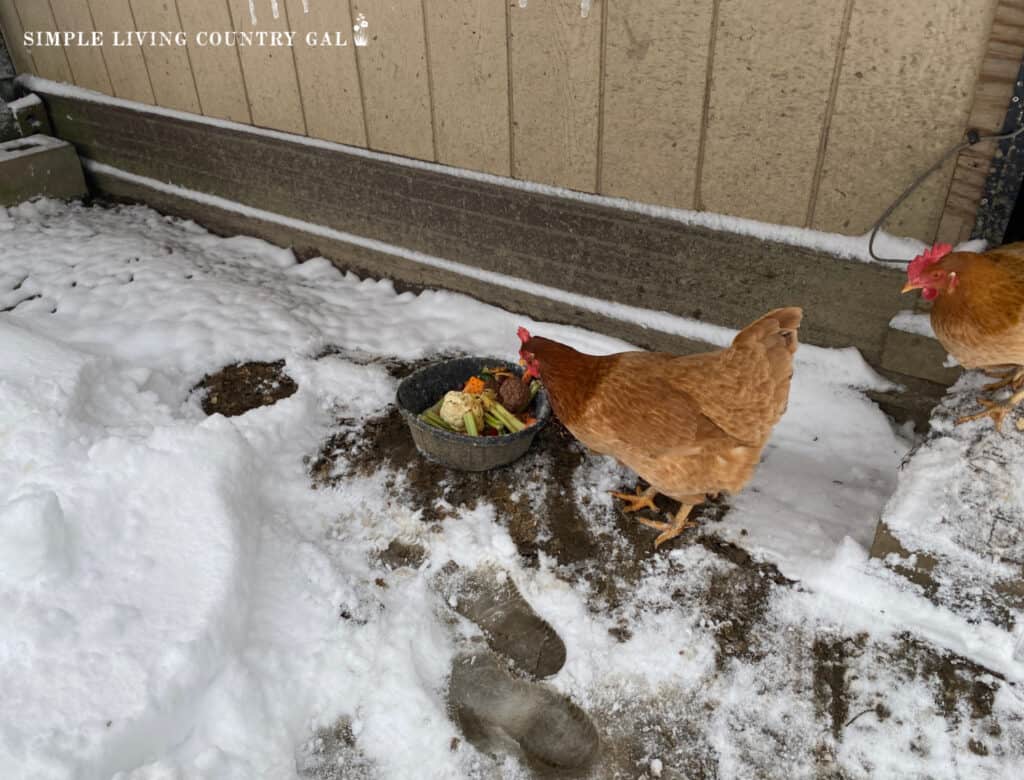
In addition to these tips, it’s also important to keep an eye on the weather forecast and be prepared for any extreme temperatures or storms. This may include having a backup heat source for your chickens’ coop or extra bedding to keep them warm. It’s also important to regularly clean and maintain their coop to prevent any potential health hazards.
While winter can be a challenging time for both chickens and their owners, with proper care and attention, your flock can thrive even in the coldest months. By following these tips, you can help keep your chickens healthy and happy throughout the winter season. Remember to always prioritize their well-being and consult a professional if you have any concerns about their health.
More Winter Help for Chickens:
- How to Prepare Chickens for Winter
- Cold Hardy Chicken Breeds
- How to Keep Free-Range Chickens Warm in Winter




